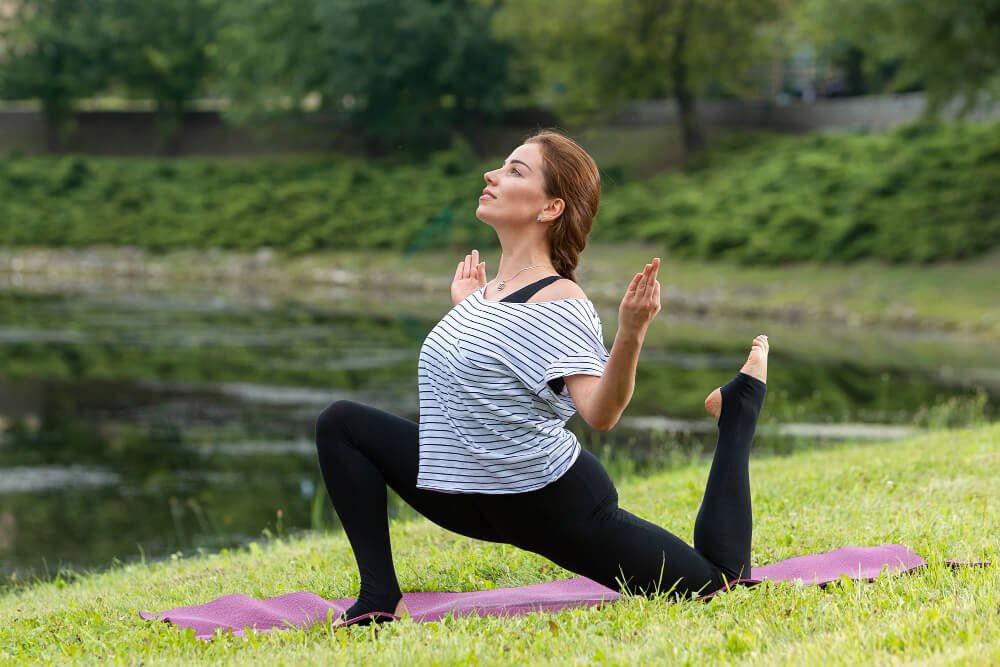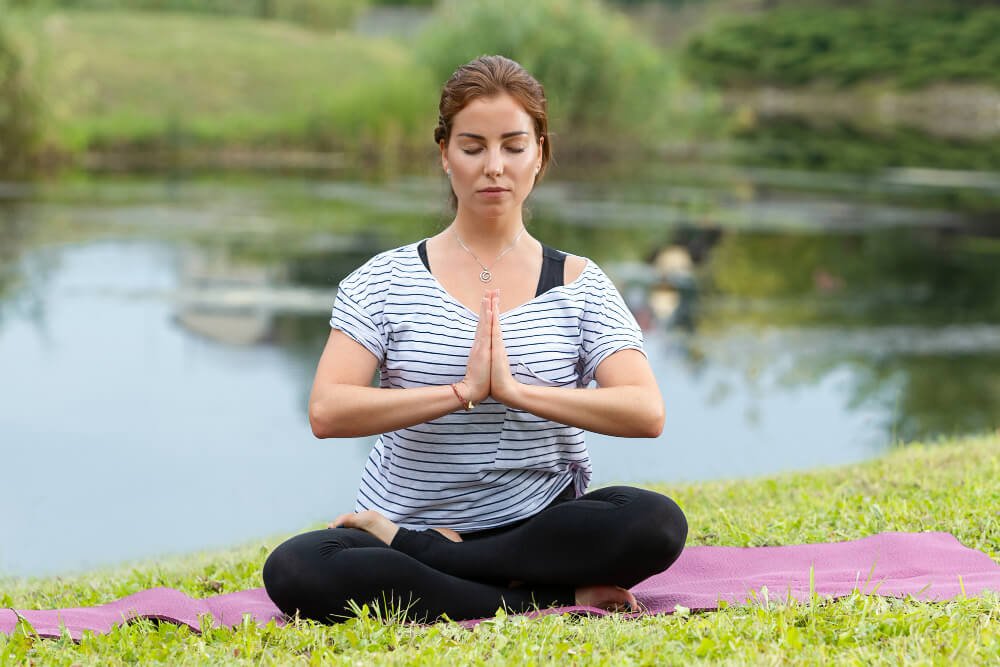How Nature Can Improve Your Mental Wellbeing

Ever feel like the world is moving too fast? Between work, social commitments, and the never-ending news cycle, it’s easy to get overwhelmed. But guess what? Nature might just be the remedy you need. Spending time outdoors can do wonders for your mental health. Let’s dive into how a little fresh air and greenery can boost your mood and improve your overall wellbeing.
The Science Behind Nature and Mental Health
Research has shown that being in nature can reduce stress, anxiety, and depression. It sounds almost too good to be true, but there’s solid science behind it. When you’re surrounded by nature, your brain produces less of the stress hormone cortisol. This means you start to feel more relaxed almost immediately.
Why Nature Works Wonders
Nature has a unique way of making us feel better. Here are a few reasons why:
- Reduces Stress: A walk in the park can lower your stress levels and help you unwind. The natural surroundings can distract your mind from daily worries and help you find some peace.
- Boosts Mood: Ever notice how a sunny day can instantly lift your spirits? Exposure to natural light increases serotonin levels in your brain, which can make you feel happier and more energetic.
- Enhances Creativity: Struggling with a mental block? Stepping outside might help. Nature can boost your creativity and problem-solving skills by giving your mind a break from routine tasks and letting it wander freely.
- Improves Focus: If you’re having trouble concentrating, a bit of nature might be the answer. Studies show that time spent in natural settings can improve attention spans and help you focus better.
Ways to Incorporate Nature into Your Life
Okay, so we know nature is great for our mental health, but how do we fit it into our busy lives? Here are some easy and fun ways to bring a little more green into your routine.
Take a Daily Walk
It doesn’t have to be a long hike in the mountains. A simple 20-minute walk in your local park can make a big difference. Try to make it a daily habit, and you’ll soon notice the benefits.
Bring Nature Indoors
If you can’t get outside as much as you’d like, bring some nature indoors. Houseplants can brighten up your space and improve air quality. Plus, taking care of plants can be a calming activity in itself.
Plan Weekend Getaways
Weekends are a great time to explore the outdoors. Plan a trip to a nearby nature reserve, beach, or hiking trail. It doesn’t have to be anything fancy—just a place where you can disconnect from the hustle and bustle of daily life.
Try Gardening
Gardening is a fantastic way to connect with nature. Whether you have a big backyard or just a small balcony, growing your own plants can be incredibly rewarding. Plus, it gives you a reason to spend more time outside.
Practice Mindfulness Outdoors
Combine the benefits of mindfulness and nature by practicing meditation or yoga outside. Find a quiet spot in your backyard or a nearby park, and let the sounds of nature help you focus and relax.
The Power of Green Spaces
Green spaces, like parks and gardens, are essential for urban living. They provide a natural escape from the concrete jungle and help improve the mental health of city dwellers. Here’s why green spaces are so important:
- Accessible Nature: Not everyone has easy access to forests or mountains, but parks can be found in almost every city. They offer a convenient way to experience nature without having to travel far.
- Community Connection: Parks are great places to meet people and build a sense of community. Social interactions in these settings can boost your mood and reduce feelings of loneliness.
- Physical Activity: Parks provide a safe space for physical activities like jogging, cycling, or simply playing with your kids. Physical exercise is a well-known stress buster and can significantly improve your mental wellbeing.
Nature and Mindfulness: A Perfect Match
Mindfulness is all about being present in the moment, and nature provides the perfect backdrop for this practice. When you’re outside, try to really pay attention to your surroundings. Notice the colors, sounds, and smells. Feel the breeze on your skin. This kind of mindful observation can help ground you and reduce anxiety.
Simple Mindfulness Exercises in Nature
- Nature Walks: As you walk, focus on the sensation of your feet hitting the ground. Pay attention to the rhythm of your steps and your breathing.
- Sitting Meditation: Find a comfortable spot to sit. Close your eyes and listen to the sounds around you. Try to identify each one without judgment.
- Sensory Exploration: Use all your senses to explore your surroundings. Touch the leaves, smell the flowers, and listen to the birds. This can help you feel more connected to nature and yourself.
The Healing Power of Water
There’s something incredibly soothing about water. Whether it’s a calm lake, a flowing river, or the ocean waves, being near water can have a profound impact on your mental health.
Why Water Calms the Mind
- Natural White Noise: The sound of water is often used in sleep and relaxation apps because it creates a form of white noise that can drown out distractions and help you relax.
- Visual Tranquility: Watching water move can be hypnotic. The rhythmic motion can help your mind enter a state of flow, where worries fade away.
- Cool and Refreshing: Taking a dip in a natural body of water can be incredibly refreshing, both physically and mentally. Cold water can invigorate your body and clear your mind.
Ways to Enjoy Water
- Visit a Beach: If you live near the coast, make regular trips to the beach. The sound of the waves and the feeling of sand between your toes can be very therapeutic.
- Explore Rivers and Lakes: Many cities have rivers or lakes where you can spend time kayaking, fishing, or just sitting by the shore.
- Install a Water Feature: If you have a garden, consider installing a small fountain or pond. The sound of running water can create a peaceful atmosphere right in your backyard.
Forest Bathing: A Japanese Tradition
Forest bathing, or Shinrin-yoku, is a Japanese practice that involves spending time in a forest environment. It’s not about hiking or exercise, but rather about immersing yourself in the forest atmosphere and soaking up its calming effects.
Benefits of Forest Bathing
- Reduced Stress: Forest environments have been shown to lower cortisol levels, reduce heart rate, and improve overall feelings of well-being.
- Enhanced Immune Function: Trees release phytoncides, natural compounds that can boost your immune system when inhaled.
- Mental Clarity: Spending time in a forest can help clear your mind and improve focus, making it a great way to reset after a busy week.
How to Practice Forest Bathing
- Find a Forest or Park: You don’t need to travel to a remote wilderness; a local park with plenty of trees will do.
- Take It Slow: The key is to move slowly and mindfully. Sit or lie down if you feel like it, and let yourself be present in the moment.
- Engage Your Senses: Notice the smells, sounds, and sights of the forest. Touch the bark of trees and feel the leaves. The goal is to fully immerse yourself in the experience.
The Benefits of Nature for Children
It’s not just adults who benefit from nature; children can gain a lot from spending time outdoors too. Playing outside can improve their physical health, boost their mood, and enhance their learning.
Nature Play for Kids
- Improved Physical Health: Outdoor play encourages children to be more active, which can help combat issues like obesity and improve overall fitness.
- Better Mental Health: Nature can reduce symptoms of ADHD and anxiety in children. It provides a calming environment where they can relax and just be kids.
- Enhanced Creativity: Unstructured play in natural settings can boost creativity and problem-solving skills. Kids are free to explore, build, and imagine in ways they can’t indoors.
Encouraging Outdoor Time
- Lead by Example: Show your kids the importance of nature by spending time outside yourself. Make it a family activity.
- Plan Nature Activities: Organize weekend hikes, picnics, or camping trips. These don’t have to be elaborate; even a simple trip to a local park can be beneficial.
- Create a Nature-Friendly Yard: If you have a backyard, make it inviting for play. Add elements like a sandbox, a treehouse, or a garden patch for them to tend.
Bringing It All Together
The beauty of nature is that it offers something for everyone. Whether you’re a city dweller or a countryside lover, there are countless ways to incorporate nature into your daily life. Start small—take a walk in the park, plant a few flowers, or simply sit outside and listen to the birds. Over time, you’ll likely notice a significant boost in your mood and overall mental health.
Tips for Making the Most of Nature
- Consistency is Key: Try to spend time in nature regularly. Even short, daily interactions with the outdoors can have a cumulative positive effect.
- Stay Mindful: Whenever you’re outside, practice mindfulness. Pay attention to the little things—the way the light filters through the leaves, the sound of rustling branches, the smell of fresh grass.
- Mix It Up: Explore different natural settings. Each environment offers unique benefits, so don’t limit yourself to just one type of outdoor experience.
Conclusion
Nature is a powerful tool for improving mental wellbeing. It’s accessible, enjoyable, and incredibly effective. By making a conscious effort to spend more time outdoors, you can reap a multitude of mental health benefits. So, step outside, take a deep breath, and let nature work its magic on your mind and soul.



